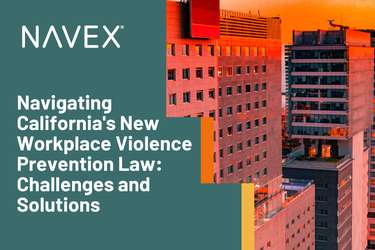Every January the global PR firm Edelman publishes its Edelman Trust Barometer: a sweeping survey of how much trust the public does (or does not) put in various types of organizations.
For anyone who works in corporate ethics or thinks about how to foster more trust in an organization, the Edelman Trust Barometer is a must-read. The 2019 report does not disappoint.
First, the good news. Around the world, trust in business increased in 2018 after several years of trust numbers in the doldrums. For the survey population overall (33,000 people in 27 countries), trust rose from 53 percent in 2017 to 56 percent last year. In the United States, it rose from 48 percent in 2017 (meaning a majority of Americans distrusted business that year) to 54 percent in 2018.
Around the world, trust in business increased in 2018. For the survey population overall (33,000 people in 27 countries), trust rose from 53% in 2017 to 56% in 2018.
Less good is news that several gaps in trust have emerged among different groups. For example, women trust business less than men; Democrats trust business less than Republicans. In all organizations, a significant trust gap exists between the “informed public” and the general public.
Most striking: employees trust their own employers above all (75 percent rate their employers as trustworthy), but equally large majorities also want their businesses to be more values-driven (74 percent) and socially aware (67 percent).
Those are a lot of percentages. Let’s translate them into a few useful insights for compliance officers.
New Whistleblower Hotline Research Quantifies the ROI of Trust & Transparency
Using Speak-up Cultures to Build & Validate Trust
One obvious alarm for corporations should be the news that women are much less trusting of business than men. Only 53 percent of women say businesses are trustworthy, versus 60 percent of men. In the United States, that gap is 15 percentage points, one of the largest in the whole survey.
You can’t blame women. For years they have received less pay, fewer promotions, and more harassment than male colleagues. Even if the era of deliberately sexist policies is fading, many women still endure the consequences of inadvertently discriminatory practices (say, missing their prime earning years while raising children). And far too many women still deal with obtuse, over-testosteroned jerks.
That underlines the importance (yet again) of cultivating a strong speak-up culture, so women can raise concerns about harassment or discriminatory personnel practices. Businesses already have strong examples of how to use whistleblower hotlines and strong anti-harassment policies together, to great benefit.
Given the increasing reputation risk from an executive scandal, building a strong speak-up culture is becoming all the more important. So if some executive at your organization gripes, “Do we really need to keep working on this stuff?” — yes, we do. You can point to this trust gap in the Edelman Trust Barometer for evidence.
Corporate Activism Can Build Trust (and Executive Unease)
Second, we have those findings that employees generally trust their own employer (even if we all trust other businesses less), which is good news. But employees also want their businesses to be more values-driven and socially aware.
Now let’s add one last statistic: 71 percent of employees agree that, “It’s critically important for my CEO to respond to challenging times” such as national crises, divisive political issues, or even employee-driven issues.
Transparency & Trust: The Underlying Themes of Top 10 Ethics & Compliance Trends
Taken altogether, those findings push senior executives into potentially uncomfortable territory. It’s great that employees want their organizations to be more ethical, but that means leaders will need to work harder at articulating exactly what “more ethical” means for your organization, and communicating that to employees and outside stakeholders alike.
As trust in other types of institutions continues to sputter, and employees look to their own employers to fill that void, CEOs might be compelled to put more clear, substantive action behind the values statement.
After all, we live in a deeply polarized society. While employees as a whole might say they want corporate leaders to respond to challenging issues, specifically what that response looks like is less clear. Because a strong public stance on climate change, gun rights, immigration, or gender issues will almost inevitably alienate some part of your workforce and the public at large.
CEOs naturally prefer to focus on business. But as trust in other types of institutions continues to sputter, and employees look to their own employers to fill that void, CEOs might be compelled to put more clear, substantive action behind the values statement.
Ethics and compliance officers should be prepared to facilitate those conversations among the CEO, board, and other senior executives; and perhaps to turn those conversations about “ethics in motion” into clear training and messaging campaigns, before people start to misconstrue what senior leadership means.
Check Yourself
Ethics and compliance officers can also poll their own employees on these questions, and compare the workforce’s answers to the norms identified in the Edelman report. Large gaps between your company and Edelman’s statistical average could indicate all sorts of trouble.
For example, we already know that companies with stronger speak-up cultures correlate to better business outcomes. Really, however, you can’t have a strong speak-up culture unless employees trust the organization.
So if your internal polling found that many employees don’t trust the organization — yikes; your speak-up culture may not be as robust as you think or want. If your workforce is more cynical and prefers to keep quiet about issues in the company, nothing good comes from that.
Those are only a few ways you might put the findings of the 2019 Edelman report to use. It’s a thought-provoking document, and compliance officers can derive some practical implications from it.
I Could be the Least Trustworthy Person at My Company – Sincerely, the CEO








